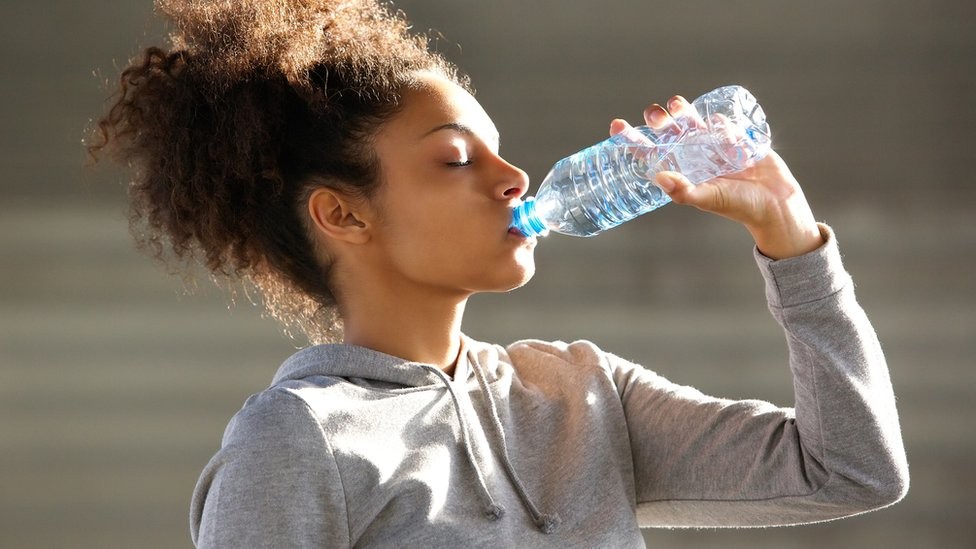How much water should I drink per day calculator?
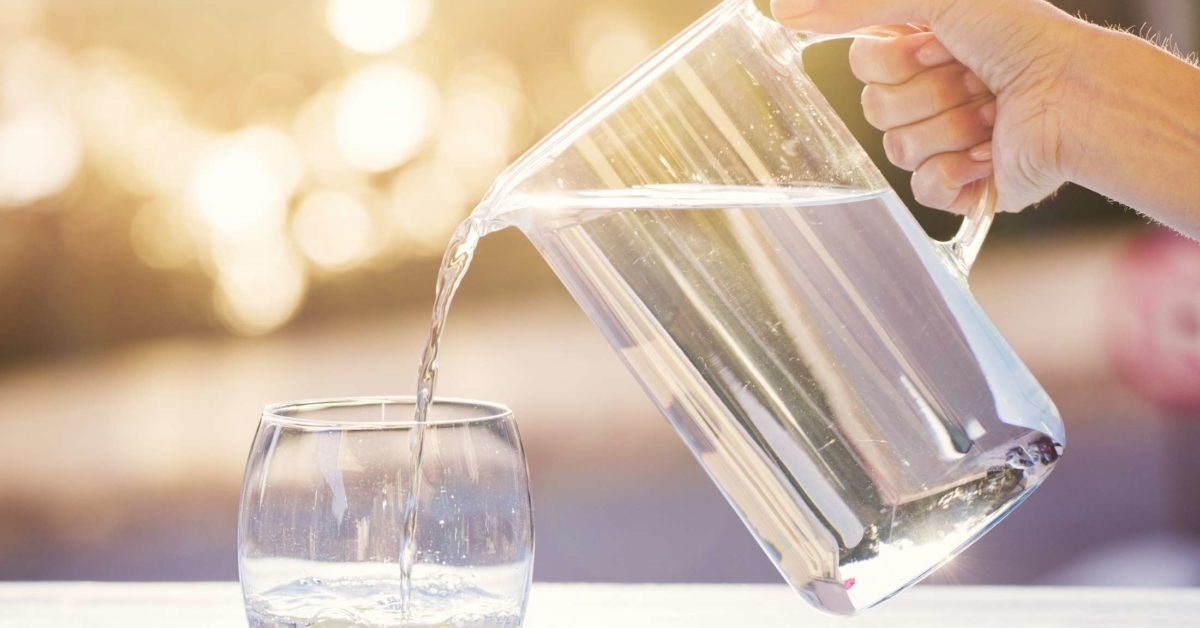 |
| Photo: medicalnewstoday. |
How much water should you drink a day? You probably know that it's important to drink plenty of fluids when the temperatures soar outside. Let's find out the amount of water you should drink per day so that your body is always in good condition.
Benefits of drinking water
Water keeps every system in the body functioning properly. The Harvard Medical School Special Health Report 6-Week Plan for Healthy Eating notes that water has many important jobs, such as:
carrying nutrients and oxygen to your cells
flushing bacteria from your bladder
aiding digestion
preventing constipation
normalizing blood pressure
stabilizing the heartbeat
cushioning joints
protecting organs and tissues
regulating body temperature
maintaining electrolyte (sodium) balance.
Giving your body enough fluids to carry out those tasks means that you're staying hydrated.
It is warned by the health.havard.edu.com that if you don't drink enough water each day, you risk becoming dehydrated. Warning signs of dehydration include weakness, low blood pressure, dizziness, confusion, or urine that's dark in colour.
The recommended intake of water by age
There is no fixed amount of fluid recommended by age, but some patterns emerge among healthy individuals doing a moderate amount of activity in a temperate climate.
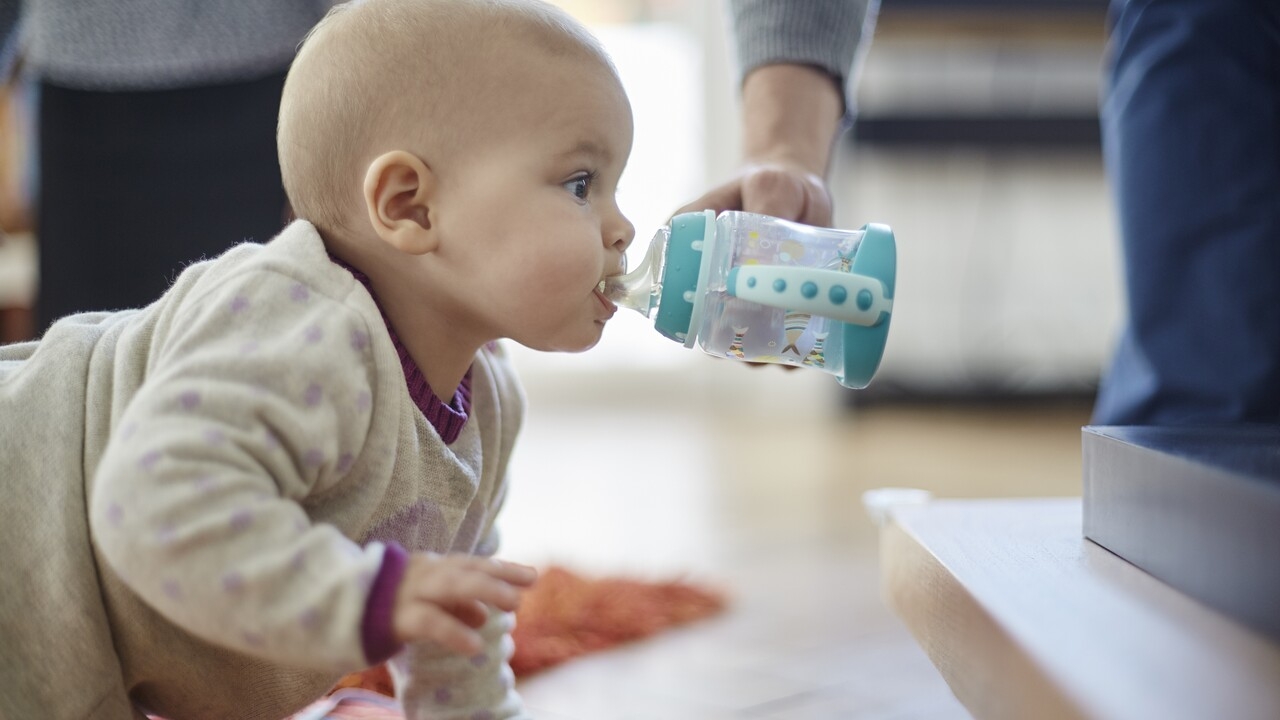 |
| Photo: parents.com |
Infants
The amount of formula or breast milk an infant takes in averages 780 millilitres (ml), or just over 26 fl oz, of breast milk or formula milk each day until the age of around 6 months. Before the age of 6 months, plain water is not recommended.
This ranges from around 525 ml (just under 18 fl oz) a day for 3.5-kilo newborn to 1,200 ml per day (45 fl oz) for an 8-kilo infant at 6 months or around 150 ml (5 fl oz) per kilo of weight per day.
This is proportionally far more than an adult needs. After infants start consuming solid foods, they need less fluid from breast milk and formula.
Children aged over 12 months
Children should be encouraged to drink water: as part of the daily routine, for example, after brushing teeth and before, during and after playtime at school when the weather is warm as an alternative to sweetened drinks and juices. Juice consumption should be limited to one glass a day.
Parents are advised to keep a pitcher handy to encourage healthful water-drinking habits, and schools should have water fountains or equivalent facilities.
Children who are sick with a fever
For children who are at risk of dehydration, for example, with a fever, the CDC recommend the following:
Age Amount of fluid needed
Up to 12 months 3 cups
1 to 3 years 4 cups
4 to 8 years 5 cups
6 to 13 years 8 cups
14 years and over 11 to 13 cups for males and 8 to 9 cups for
females
If a child is sick with a fever, it is important to seek medical help. A doctor may also advise oral a rehydration solution to ensure an adequate electrolyte balance.
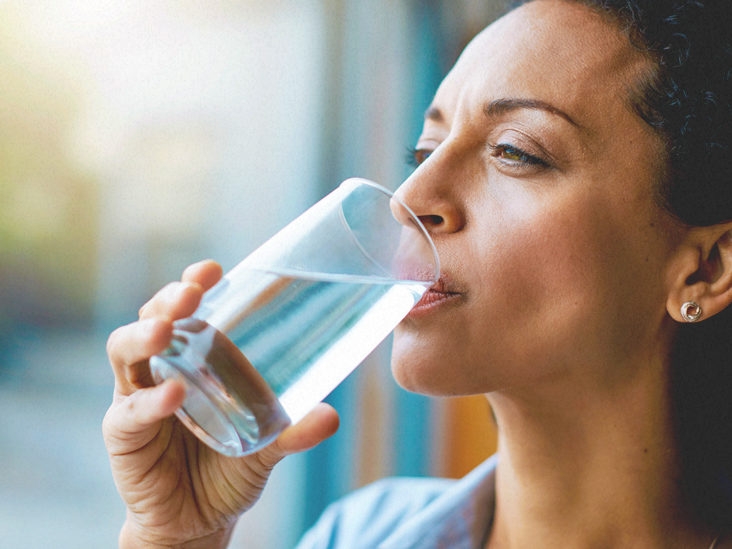 |
| Photo: Healthline.com |
Adults
The CDC cites figures showing that in 2005-2010 in the U.S., young people were drinking an average of 0.45 litres or 15 fl oz of water on a given day, while adults drank an average of 1.2 litres or 39 fl oz.
The adequate intakes recommended for total water from all sources each day for most adults between 19 and 30 years of age are:
3.7 litres (or about 130 fl oz) for men
2.7 litres (about 95 fl oz) for women
The medicalnewstoday.com suggests that one source suggests a man’s requirements might range from 2.5 litres (84.5 fl oz) if sedentary to up to 6 litres (203 fl oz) if active and living in a warm climate.
For women, the requirements will probably be 0.5 to 1 litre (17 to 34 fl oz) lower than those for men because of typically smaller body mass.
However, during pregnancy, women are likely to need an extra 0.3 litres (10 fl oz), and an additional 0.7 to 1.1 litres (23 to 37 fl oz) while breastfeeding.
| Tips for avoiding dehydration It's not just water that keeps you hydrated. All beverages containing water contribute toward your daily needs. And it's a myth that caffeinated beverages or those containing alcohol are dehydrating because they make you urinate. They do, but over the course of the day, the water from these beverages still leads to a net positive contribution to total fluid consumption. |
If you find this article interesting about "water drink" , don't forget to share it with your friends!
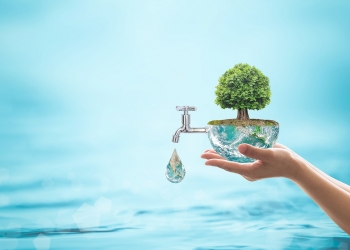 9 Useful TIPS for to Save Water at home 9 Useful TIPS for to Save Water at home It is reported that next to air, water is the most important element for the preservation of life. Therefore, it is important that we know ... |
 Top 7 iconic foods in New Mexico that make your mouth water Top 7 iconic foods in New Mexico that make your mouth water As we all know, New Mexico is nicknamed “The Land of Enchantment” for its natural beauty and rich history, including its amazing foods. |
 Full lyrics of Watermelon Sugar song - Harry Styles Full lyrics of Watermelon Sugar song - Harry Styles Lyrics of Watermelon Sugar song: Harry Styles' song 'Watermelon Sugar' has fans guessing who the lyrics are actually about, from ex-girlfriends to mystery lovers. |


